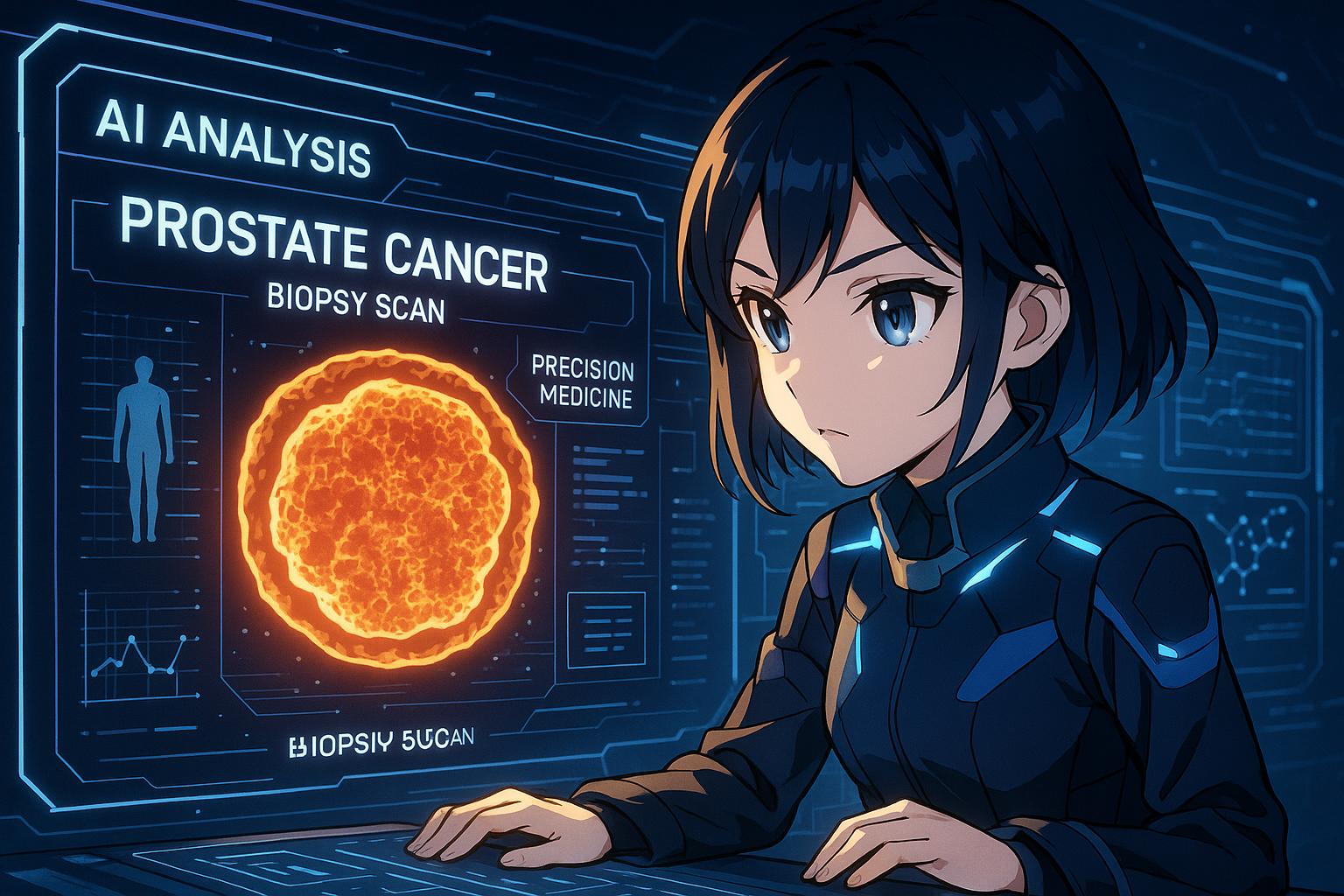Recent research highlights a significant advancement in the treatment of advanced prostate cancer, driven by the integration of artificial intelligence (AI) into clinical practice. This technology aims to resolve the ongoing disparity, often referred to as the "postcode lottery," in patient access to abiraterone, a hormone therapy critical for extending the lives of men with this formidable illness. Currently, while abiraterone is available for patients in Scotland and Wales, men in England undergoing similar diagnoses find themselves without this treatment option, raising profound questions about treatment equity across regions.
The study, spearheaded by The Institute of Cancer Research, London, alongside University College London (UCL), reveals that AI can effectively discern which patients stand to gain the most from abiraterone. By employing advanced image analysis algorithms, the newly developed test processes biopsy images to identify features that the human eye might overlook. More than 1,000 participants in the Stampede trial contributed data, allowing researchers to classify patients as either biomarker-positive or biomarker-negative. Those identified as biomarker-positive experienced a significant reduction in mortality risk with abiraterone—from 17% to 9%—while biomarker-negative patients demonstrated a reduction from 7% to 4%, suggesting they would fare just as well with standard treatments like hormone therapy and radiotherapy.
Nick James, the chief investigator of the Stampede trial and a prominent figure at The Institute of Cancer Research, articulated the research's implications, stating, “This research shows that we can pick out the people who will respond best to abiraterone.” He hopes that these findings will prompt NHS England to reconsider its funding decision for high-risk patients whose cancers have not yet metastasised. The cost of abiraterone has significantly decreased since the patent expiry in 2022, now just £77 per pack—an economical option compared to the extensive financial burden posed by newer therapies.
Despite its potential benefits, abiraterone is not without side effects. Prof James underscored the importance of careful patient selection, as the drug can result in significant adverse reactions such as elevated blood pressure and liver problems, in addition to increasing diabetes and heart attack risks. This consideration makes AI's role in tailoring treatment even more crucial, offering a pathway to maximise therapeutic benefits while mitigating risks.
The findings were disseminated at the American Society of Clinical Oncology (ASCO) Annual Meeting, prompting renewed discussions about treatment availability. Prof Kristian Helin, chief executive of The Institute of Cancer Research, referred to abiraterone as a “game changer” for prostate cancer treatment. Helin emphasised the significance of precision medication, asserting that AI could revolutionise patient testing processes and potentially standardise treatment access across England.
Dr Matthew Hobbs, director of research at Prostate Cancer UK, echoed these sentiments, advocating for urgent approval of abiraterone for patients who require it most. He described the research as both exciting and hopeful for future implementations that would ensure equitable access to life-saving treatments, reinforcing the urgency for government intervention.
As advancements in AI continue to reshape the landscape of cancer treatment, the collective hope remains that such innovations will bridge existing gaps in healthcare provision, ensuring that all patients, regardless of their geographical location, have the opportunity to receive the most effective therapies available.
Reference Map:
- Paragraph 1 – [1], [2]
- Paragraph 2 – [1], [2]
- Paragraph 3 – [1], [3], [5]
- Paragraph 4 – [1], [6]
- Paragraph 5 – [1], [2]
- Paragraph 6 – [1], [4]
- Paragraph 7 – [2], [3], [5]
Source: Noah Wire Services
